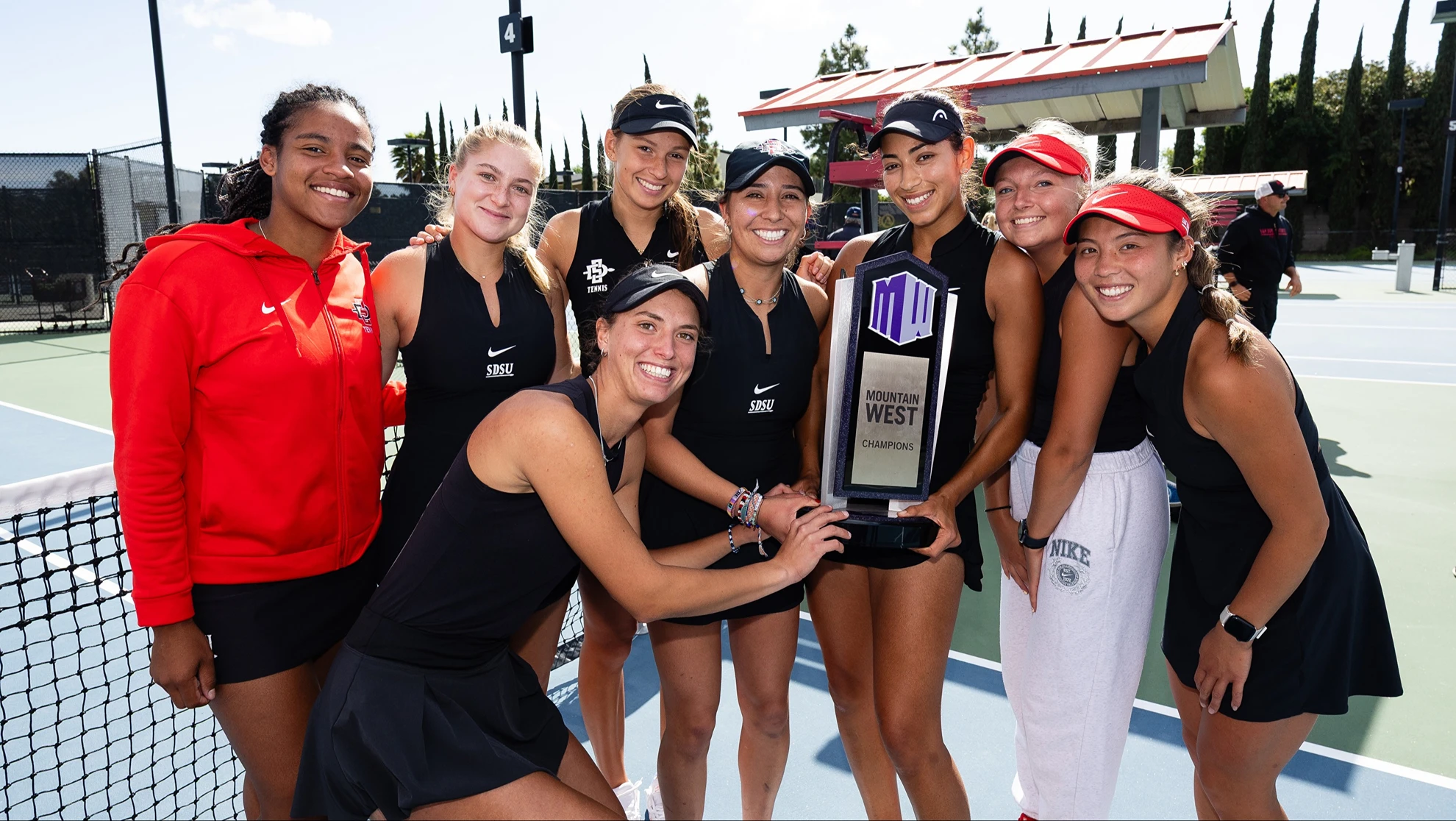SDSU Named an Age-Friendly University
The designation recognizes a commitment to lifelong learning and age-inclusivity.

With the number of older adults and their caregivers significantly increasing nationwide, San Diego State University has stepped up as a leader with new programs as part of its decades-long initiatives to provide social, personal and economic benefit to older adults and their communities.
As of July 2021, SDSU has now committed to being an Age-Friendly University (AFU), joining fewer than 80 institutions connected through the Age-Friendly University Global Network and Academy for Gerontology in Higher Education.
“As Southern California demographics are shifting dramatically and as individuals live longer and remain vibrant, SDSU shares AFU’s commitment to ensuring the engagement and lifelong learning of all members of our society,” said SDSU President Adela de la Torre.
By 2030, estimates indicate that one in four San Diegans will be 60 or older and those over 65 years old will double and be 30% more diverse in race, ethnicity, sexual orientation and lower socioeconomic status than today.
“Our aging adults must continue to have opportunities to meaningfully engage and contribute, but also to continue to learn and grow themselves,” de la Torre said.
As an Age-Friendly University, SDSU commits to actively evaluate its current programs and create interdepartmental and intergenerational plans to best serve older adults and the San Diego region. The following are among SDSU’s current offerings in response to and in support of San Diego’s aging population:
The Osher Institute at SDSU holds webinars and programs and provides membership-based access to local theaters, museums, cultural facilities and other opportunities. Osher Institute members are also able to access the SDSU Library and Aztec Recreation Center, and are engaged in leadership and volunteer opportunities.
The SDSU Social Policy Institute, whose staff, students and volunteers were instrumental in securing the university’s designation as an Age-Friendly University, is a nonprofit affiliate of the School of Social Work. It bridges the university with government, business and community stakeholders through teaching, research, program design, and innovation on policy, programs and practices to improve the wellbeing of older adults, their caregivers and the community.
Another program, Advancing Diversity in Aging Research (ADAR), is funded by the National Institute of Aging to recruit underrepresented SDSU students who are interested in the field of aging and prepares them for entry into a doctoral program with this focus.
The SDSU Center on Aging has for many years advanced multidisciplinary education, research and community service in gerontology and geriatrics, and has been at the forefront in developing new knowledge and influencing national policy in aging. Under the leadership of Steven Hooker, dean of the College of Health and Human Services, it has expanded to become the Center for Excellence in Aging & Longevity.
Aging trends
“In coming decades, San Diego will enjoy unprecedented increases in lifelong longevity. Initiatives like the SDSU Center for Excellence in Aging and Longevity (CEAL) will shine a bright light on ways all San Diegans can benefit from this transformation, both as individuals and as a region,” said Nancy McPherson, executive director of AARP California.
And it was in 2019 that the college now called SDSU Global Campus began developing a new model at the university to expand educational access to adults.
Since then, and highly attentive to the needs of working professionals and individuals who are parenting and those who are older adults, SDSU Global Campus has introduced an expansive suite of program and certificate offerings with flexible scheduling.
“We are proud of the inclusive nature of our one SDSU community, and this is yet another example of how we are changing and introducing new initiatives in support of our diverse community,” said Radhika Seshan, the SDSU Global Campus dean.
Seshan and her team also eased the application and enrollment processes and built centralized support services with older adults in mind.
SDSU’s commitment as an Age-Friendly University comes as California has been named the eighth state in the nation to join the AARP Network of Age-Friendly States and Communities. The State of California made the announcement in June.
“AARP applauds San Diego State University for being a champion in aging and joining the Age-Friendly University program,” stated Joe Garbanzos, president of AARP California.
“People of all ages and abilities benefit from the adoption of age-friendly policies and programs,” Garbanzos said. “As important, our communities benefit from the economic, intellectual, and societal contributions of older adults. AARP looks forward to collaborating with SDSU to advance this important age-friendly agenda.”
City-based programs
Prior to SDSU’s commitment as an Age-Friendly University, the Social Policy Institute assisted the cities of San Diego, Chula Vista and La Mesa to meet the requirements and join AARP’s Network of Age-Friendly States and Communities. The San Diego Foundation supported these and other efforts to increase “livability” and reduce barriers for older adults.
“Training future professionals and leaders to support older adults is an important part of our work, but it does not end there,” said Steven Hornberger, director of SDSU’s Social Policy Institute.
“Sometimes, the most meaningful thing you can do for a person is to help them see opportunities to participate and to engage with their community and, through that, feel valued and appreciated,” Hornberger said. “Our focus is to assist all San Diego’s older adults live long and healthy lives of equity, opportunity and wellness.”
Kimberly Gallo, director of Aging & Independence Services with the County of San Diego Health and Human Services Agency, said: “The commitment of San Diego State University to engage older adults in diverse learning opportunities aligns with the county’s Aging Roadmap framework, which aims to create supportive and inclusive communities where people of all ages and abilities have the opportunity to thrive. Our entire region will benefit from SDSU’s efforts to enhance older adults’ access to intergenerational learning, wellness and cultural programs, and training for older workers who want to stay in the workforce or pursue a second career.”



